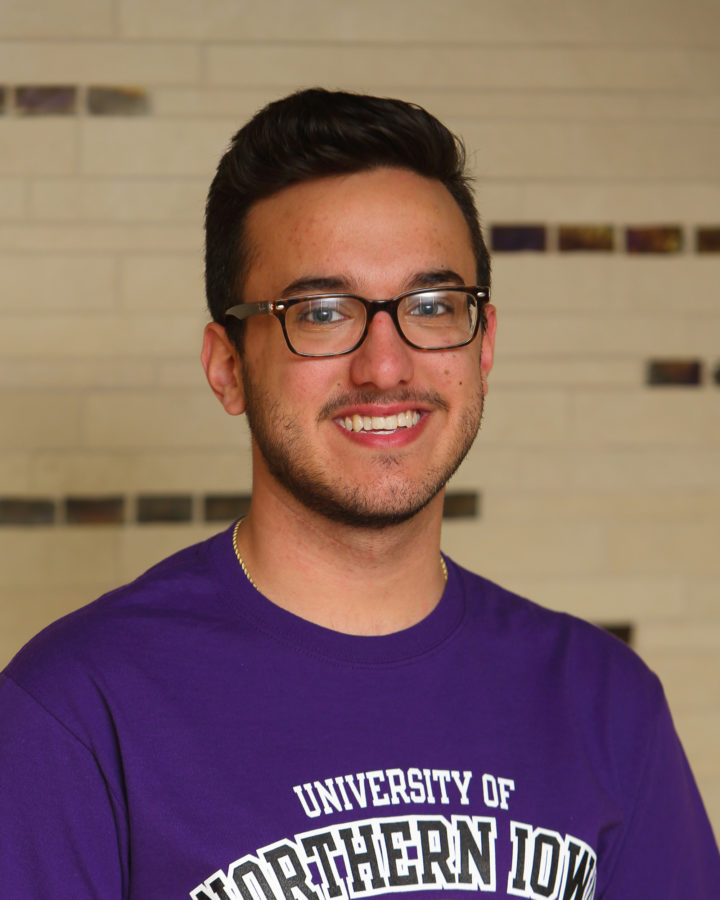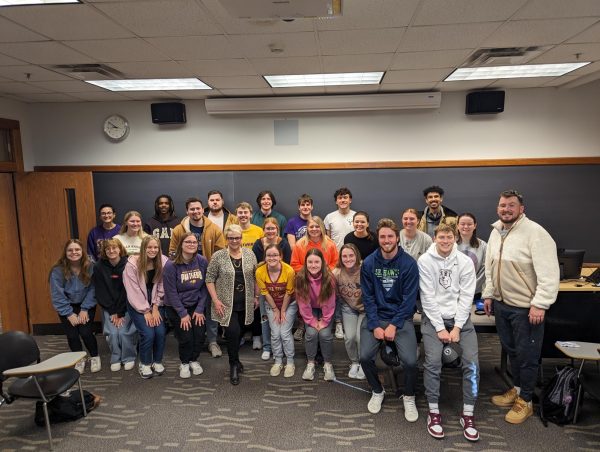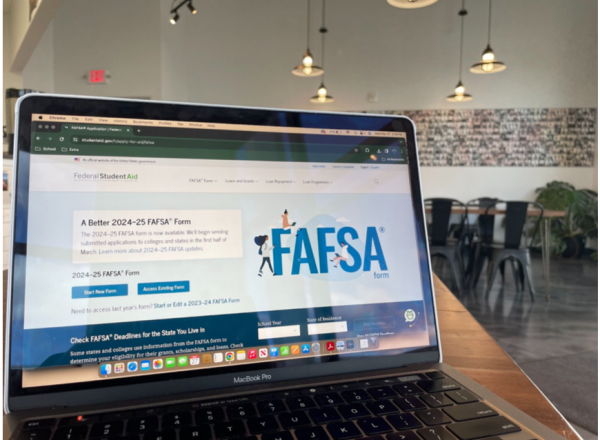Diversity curriculum
Andrew Jessip, HLSU president
Dec 5, 2016
The initial Diversity Exit Requirement proposal submitted last year by the Northern Iowan Student Government (NISG) has been under revision and a new version with inputs from the exploratory committee is set to be put forth by the end of the academic year.
According to Timothy Kidd, the faculty chair of the exploratory committee, it is unclear what path NISG will take to meet their goals.
“At the moment, it’s not clear that a curriculum based diversity exit requirement would be the best way to achieve the NISG’s stated goals of an increased and cumulative exposure to diversity for all students,” Kidd said.
“We are currently exploring this,” Kidd said, “As well as the potential for a diversity related degree certificate, and activities related to student orientation, “UNI Now!” and related student workshops. After our last meeting, we are awaiting consideration by NISG.”
Kidd also said that he had called for a committee of faculty, students and administrators to discuss and suggest significant changes to the initial proposal.
“Regardless of the final structure, it is anticipated that some form of proposal will be put forth by the end of the academic year,” Kidd said. “I believe part of this proposal will be to ensure that our work in this area continues into the future by continuously examining goals, measuring outcomes and determining what is the best path at UNI for enhancing exposure to diversity in the student body.”
Kidd also discussed faculty members’ views on diversity exit requirements.
“Faculty members of the committee believe diversity to be a topic of importance and an area in which student education can be enhanced,” Kidd said. “How this is to be achieved, and whether curriculum is the best route for this, is controversial. Faculty want any measure that would be adopted to not just be a graduation hurdle or something for show, but a meaning[ful] experience that improves the quality of a UNI education”.
Andrew Jessip, president of the Hispanic Latino Student Union (HLSU), supported NISG’s proposal but had his own views on the subject.
“We believe UNI offers an adequate amount of diversity programs. But, as with anything, we think there should constantly be a question as to who is attending these programs, or rather, who isn’t,” Jessip said.
“We do support the proposal,” Jessip said. “It is great that UNI offers these courses already, but there seems to be a stark divide between who takes these classes or even knows they exist. Requiring all students to participate in these topics, we believe, would help our greater UNI community engage in some pretty important topics.”
Kidd stressed the importance of thinking through all the options when proposing such an exit requirement.
“I cannot speak for administration or other faculty, but I can answer this from my own perspective. If we are going to create a diversity exit requirement, it should be done with thought,” Kidd said. “I don’t believe in adding additional burdens for graduation unless they significantly enhance students’ educational experience and add value to the degree.
“At the moment, we are awaiting a response by NISG on our current work,” Kidd said. “I believe soon after this, we will be in a position to speak directly with the faculty senate on a course of action to be explored over the next few months to create a proposal with merit by the end of the academic year.”
















